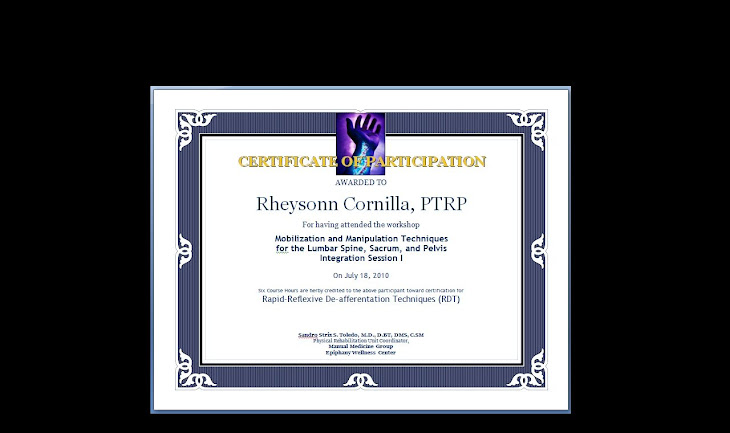The problem with HVLA (and I'm a frequent user), if it goes wrong you
seldom get a chance to put it right. HVLA is an art-form that gets
little appreciation because most people are not that good at it. And
if you are not so good its probably best you leave the neck well alone.
Over the years my respect for the neck has grown considerably, and I now
have a policy of not manipulating on the first visit, and not at all if
I can get good enough results without it. Most cranio-cervical joint
and C1/2 problems can be treated remotely. Always leave room for
nature to do some of the rebalancing work. The concept of "minimum
interference" comes to mind here - a concept first relayed to me by Jon
Leigh in the 1980's. Thanks Jon.
Kevin
--- In OsteopathyForAll@ yahoogroups. com, Benjamin Katz
wrote:
>
> Dear Howard,
>
> Your take on the mechanisms involved in this is most interesting and
> I'm sure there's a lot to what you say. I appreciate your contribution
> and I hope that you will continue to share your clinical knowledge and
> experience as it is clearly both deep and extensive. However, I am not
> so sure about your admonition to:
>
> > "steer clear of anyone who tries to treat this cranially."
>
> Not all osteopaths who use cranial techniques believe that osteopathy
> begins and ends in the head. Most of the teachers I have studied under
> that work with this approach see it as a mode of treatment that in no
> way affects the fact that success with our patients still relies on
> the appropriate application of osteopathic principles and many of them
> have learned these from Mr Wernham, one of the more senior amongst
> them having been his apprentice for many years.
>
> All of these osteopaths and most that I have met that use this
> approach seriously understand that there is a place for local
> treatment as well as a global approach to the body, are familiar with
> the complex and dynamic interrelationships that exist in the body and
> are well aware that if one is going to address the tissues that are
> currently causing the symptoms, one had better make sure that one also
> addresses the factors in the way this patient's body works as a whole
> that have predisposed these tissues to get into this state / are
> maintaining it, if one doesn't want to see the problem return in the
> future or degenerate into something worse.
>
> There may be osteopaths that treat palliatively and osteopaths that
> understand that the whole body is a dynamic whole that must be
> addressed as such but they cannot be easily divided into "cranial" and
> "classical" or exclusively identified with any other camps that we may
> recognise in the profession. There are osteopaths that have never
> heard of Wernham that work with osteopathy in a manner that does just
> as much justice to the tradition passed down to us from AT Still as
> yourself and I am quite certain that some of them use structural
> techniques, others cranial approaches and others still the whole body
> treatment approach that Mr Wernham taught you.
>
> The great beauty of osteopathy is that the power is in the principles
> and one may apply these successfully in any way one chooses if one
> does so faithfully. This is, presumably, why Dr Still did not teach
> his students techniques but encouraged them to learn for themselves to
> listen to the body itself and "find the health," as I have no doubt
> that you yourself do in your own way.
>
> So, if you meant that Sue should be wary of anyone who looks
> exclusively at her head, I would have to agree with you wholeheartedly
> and apologise for going on at such length for what is in fact a small
> clarification. If, on the other hand you were indeed suggesting that
> she should avoid practitioners that use "cranial techniques," I hope
> that this may have gone some way to convincing you that some of us
> might not be so narrow minded as you had thought.
>
> By the way, I thoroughly enjoyed the conference on Sunday and will
> look forward to future events.
>
> Regards,
>
> Ben














No comments:
Post a Comment